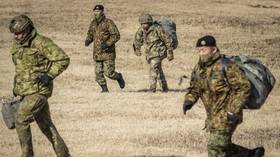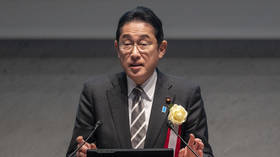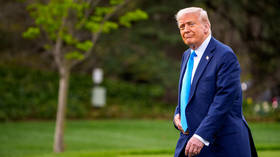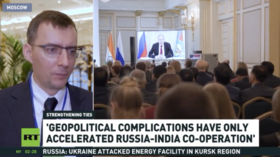Britain and Japan to sign defense pact

UK Prime Minister Rishi Sunak and his Japanese counterpart, Fumio Kishida, will sign a major defense agreement on Wednesday, Sunak’s office has announced. With Britain and its NATO allies focused on opposing both Russia and China, Japan is deepening its cooperation with the Western military bloc.
The ‘Reciprocal Access Agreement’ will allow both countries to deploy troops on each other’s soil, and to hold “larger and more complex” joint military exercises, according to a statement from Downing Street.
While Japan already hosts around 50,000 US troops, Wednesday’s signing will make the UK the first European state to have a reciprocal access deal with Japan. Australia has had such an agreement with Japan since 2007, although this pact became non-binding when it was renewed in October.
The signing comes a month after Japan, the UK, and Italy announced that they would team up to develop a sixth-generation fighter jet, merging separate national jet programs.
These developments mark a significant step by Japan away from its post-WWII constitution, which commits the country to a pacifist foreign policy and mandates that its military be a strictly defensive and peacekeeping force.
However, Japan joined the renewed Quadrilateral Security Dialogue – a loose military alliance with the US, India, and Australia explicitly aimed at countering China in the “Indo-Pacific” region – in 2017, and in December announced a doubling of its military budget, citing missile “missile threats” from China and North Korea.
Tokyo also joined the West in sanctioning Russia over the conflict in Ukraine, and plans on stationing supersonic missiles near Russia’s northeastern islands. Moscow considers this plan to pose “a serious challenge” to its security.
Sunak and Kishida are set to discuss both Ukraine and China on Wednesday, with the British prime minister’s office stating that they would talk about “the need to maintain our collective support” for Kiev and strengthen its military.














